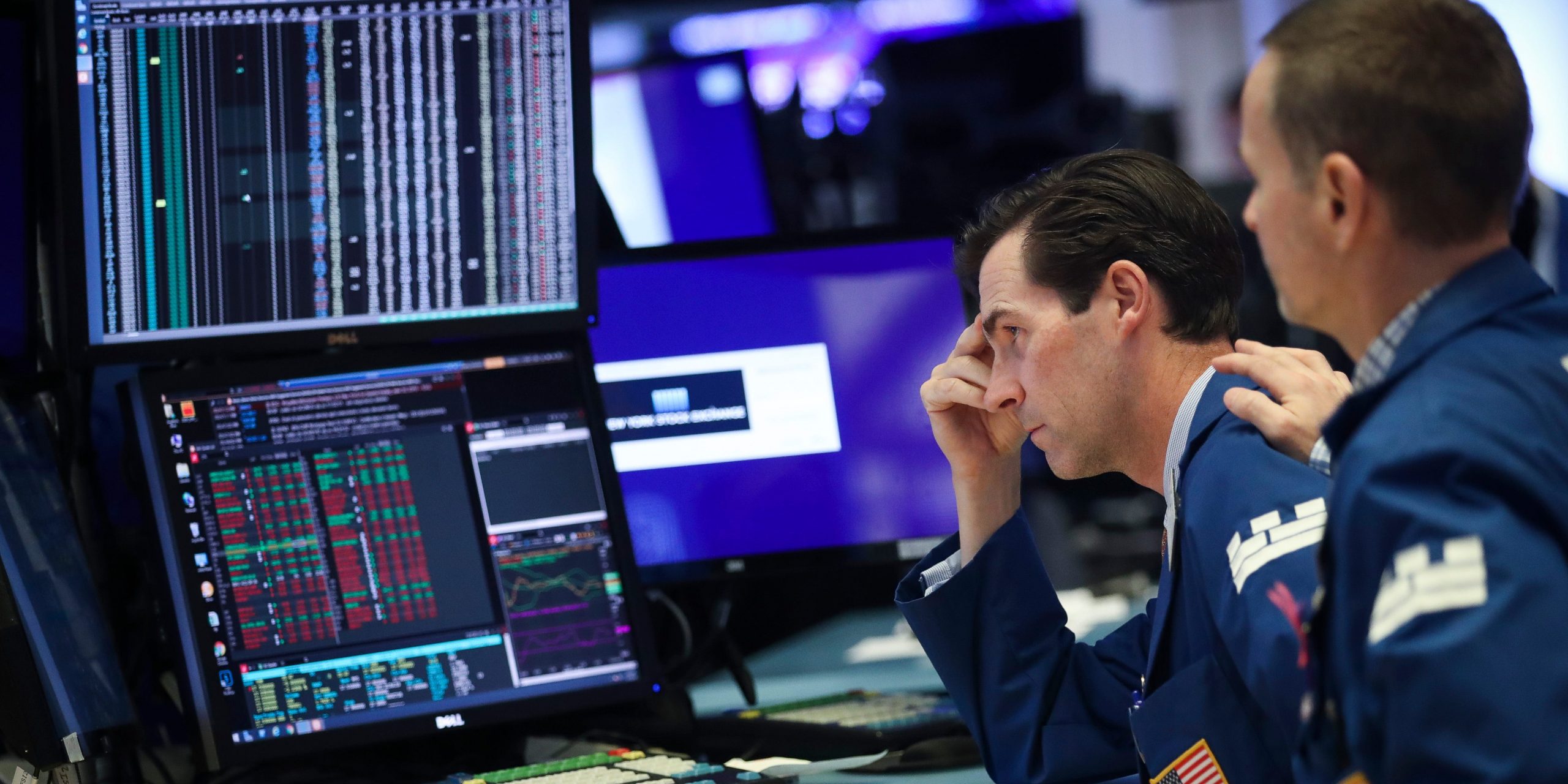
- Investors should sell their long positions in stocks as the market is “wildly overvalued,” AlphaOmega Advisors’ Peter Cecchini said in a note on Wednesday.
- Higher taxes under a Democratic controlled Congress and higher long-term interest rates under are two risks to the stock market that could be particularly troublesome for tech and small cap stocks, according to the note.
- “The reflation narrative on a Democratic sweep ignores the impact of higher taxes and the potential for higher yields,” Cecchini said.
- Visit Business Insider’s homepage for more stories.
The stock market is “wildly overvalued” and investors should take advantage of the recent strength in the market and lighten up on their exposures, AlphaOmega Advisors’ Peter Cecchini said in a note on Wednesday.
Cecchini, who was the former head of equity and derivatives strategy at Cantor Fitzgerald, previously recommended in late November that investors “buy the bull*&-t for a trade into Christmas on fund flows,” and now he said to “close it out,” according to the note.
“It’s now time to close out that long equities trade, especially in small caps, which in any rational universe are wildly overvalued and technically hyperextended,” Cecchini said.
The big risk to stocks under a Democratic “blue wave” is the increased likelihood of higher taxes and the potential for higher yields, according to Cecchini, which would outweigh the potential for additional stimulus.
Higher yields would be particularly troublesome for technology and small cap stocks, according to Cecchini.
But a big risk to Cecchini's outlook is if significant new stimulus is passed, which "will continue to fuel the speculative bubble in equities despite the substantial economic tradeoffs in the form of higher taxes and rising yields," the note said.
Increased deposits from stimulus measures are going straight into the equity market, according to Cecchini.
"Those deposits, coupled with easy access to markets through mobile-based trading apps, have found their way directly into equity markets, and especially the most speculative stocks," Cecchini explained.
Given the risks to the market and the record strength in stocks since the start of the year, investors should reduce their stock exposure, Cecchini concluded.
